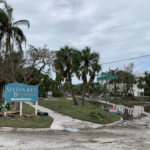An appeals court has upheld a lower court ruling that blocks a portion of a new Alabama law limiting the type of assistance voters can receive when completing mail-in ballot applications. The law aimed to prevent ballot harvesting but was criticized for unfairly targeting blind, disabled, and illiterate voters.
The 11th Circuit Court of Appeals denied Alabama’s request to overturn the lower court’s injunction, preventing the state from enforcing parts of Senate Bill 1 that prohibited certain voters from receiving help with absentee ballot applications for compensation. The ruling also blocked criminal penalties against individuals assisting these voters with their mail-in ballot applications.
The appeals panel stated that lifting the injunction would harm ballot access for vulnerable voters and go against the public interest. While most of SB1 remains intact, other provisions aimed at preventing election fraud can still be enforced.
The law criminalizes the payment or provision of gifts to those involved in absentee ballot application processes. A coalition of voter outreach and rights groups sued to block the law, arguing that it disproportionately affects vulnerable populations and violates federal protections under the Voting Rights Act.
The appeals court’s decision was praised by the League of Women Voters, stating that the ruling allows disabled and low-literacy voters to receive assistance throughout the voting process. The Alabama Attorney General’s office argued that the court’s decision could compromise election security and the voting rights of vulnerable voters.
The injunction remains in place for certain voters, while the rest of SB1 can still be enforced. The outcome of the case has implications for voter engagement and assistance in the voting process. Please rewrite this sentence.
Source link




